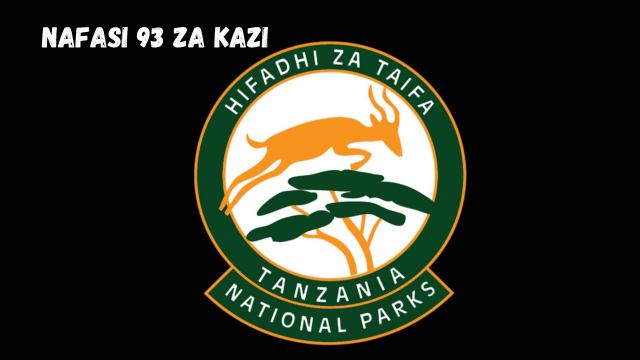TANAPA New Vacancies March 2024, Jobs Tanzania National Parks Authority. It is the government agency responsible for the management and conservation of Tanzania’s national parks. Tanzania is renowned for its rich biodiversity and stunning natural landscapes, including iconic destinations such as Serengeti National Park, Ngorongoro Conservation Area, and Kilimanjaro National Park. TANAPA oversees these and other protected areas, working to preserve their ecological integrity while promoting sustainable tourism and community development initiatives.
“The survival of our wildlife is a matter of grave concern to all of us in Africa. These wild creatures amid the wild places they inhabit are not only important as a source of wonder and inspiration but are an integral part of our natural resources and our future livelihood and well being.
In accepting the trusteeship of our wildlife, we solemnly declare that we will do everything in our power to make sure that our children’s grandchildren will be able to enjoy this rich and precious inheritance. The conservation of wildlife and wild places calls for specialist knowledge, trained manpower, and money and we look to other nations to co-operate with us in this important task – the success or failure of which not only affects the continent of Africa but the rest of the world as well.”
The Tanganyika National Parks Ordinance CAP [412] of 1959 established the organization now known as Tanzania National Parks (TANAPA), and Serengeti became the first National Park. Currently, TANAPA is governed by the National Parks Act Chapter 282 of the 2002 revised edition of the Laws of the United Republic of Tanzania. Conservation in Tanzania is governed by the Wildlife Conservation Act of 1974, which allows the Government to establish protected areas and outlines how they are organized and manage
Sustainable Conservation of national parks is the core business of the organization. Nature-based or wildlife tourism is the main source of income that is ploughed back for management, regulation and fulfillment of organizational mandate To manage and regulate the use of areas designated as National Parks by such means and measures to preserve the country’s heritage, encompassing natural and cultural resources, both tangible and intangible resource values, including the fauna and flora, wildlife habitat, natural processes, wilderness quality and scenery therein and to provide for human benefit and enjoyment of the same in such manner and by such means as will leave them unimpaired for future generations.

Leave a Comment